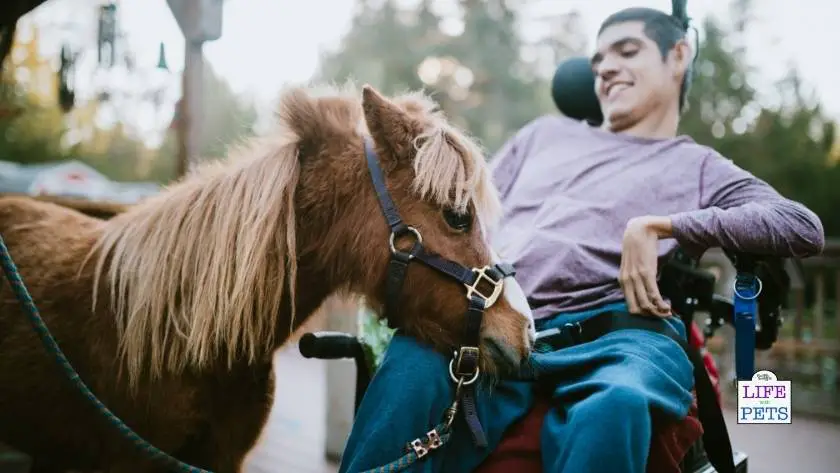Animals can improve your social skills and physical health, but did you know that they are also good for your mental health? It is becoming increasingly popular for animals to be used as part of therapy and throughout addiction rehabilitation, known as zootherapy.
Zootherapy is a process in which an animal acts as a link between the therapist and the person with difficulties. The animal helps to make progress towards the person’s goals. It is also known as animal-assisted therapy.
I volunteer at the Zoological Society of East Anglia where we have a great education and outreach programme that supports our mission to empower people to make positive changes in their lives and local communities by promoting the connections between nature and well-being.
No matter how you’re feeling, a wander round the Zoo wherever you are, gets you outdoors and inspired by the wonders our animal kingdom has to offer. I always feel better after a morning at the Zoo.
But you don’t need to go to the zoo to benefit from zootherapy.
At home, more than 50% of households in the UK are estimated to own at least one pet. During the coronavirus pandemic, these figures have risen, as people seek animal companionship to tackle feelings of isolation and anxiety.
Whether your friend is feathered, furry or scaled, pets can have a significant impact on our lives and our mental health. To promote Mental Health Awareness Month, the team from Delamere Health have shared five ways that animals could be benefiting your wellbeing.
Animals can help reduce the effects of depression and loneliness
Isolation and loneliness can trigger symptoms of depression and anxiety. During the pandemic, these emotions have heightened, with 25 million people in the UK reported feeling lonely or disconnected. Animals are a great source of comfort, companionship and motivation, often helping us improve our mental wellbeing without even realising it.
Companionship not only helps to prevent symptoms of depression and loneliness, but it can also lower the risk of long-term health problems. Research has shown that owning a pet is associated with reducing your risk of heart disease and helps lower unhealthy cholesterol and triglyceride levels.
Animals can lower levels of anxiety and stress
Interacting with animals can be a great way to help ease mental health issues, in particular with stress and anxiety. When petting or playing with your companion, your stress-related hormones reduce. Studies have shown that these benefits can occur after just five minutes of interacting with your pet.
Interacting with animals raises our feel-good hormones called endorphins. These include serotonin and dopamine, the hormones that calm and relax the nervous system. When we begin to smile, laugh or converse with our pets, we experience feelings of happiness, relaxation, overall mood improvements, and lower symptoms of anxiety.
Animals can help children with autism and ADHD
Working with animals can play a role in easing the symptoms of conditions that co-occur with ADHD. 1.5 million people in the UK live with ADHD, a disorder that makes it difficult to focus and control impulses. While there are many approaches to treating this disorder in adults and children, equine therapy has proven successful.
Interacting with horses can help individuals gain confidence and eliminate problem behaviours such as inattention and lack of focus. Research revealed that children with ADHD show clear signs of improved motor skills, behaviour and academic performance, including social and communication skills after taking part in equine therapy.

Animals are extremely helpful for people who find it challenging to socialise and communicate with others. Pets help to act as a type of communication bridge between individuals, providing people with something to interact about with others. Looking after your pet as a hobby gives you the chance to socialise with other people and keeps you from feeling withdrawn.
This has been predominant within children with autism. Research reveals that children with autism who have a pet have much more advanced social skills and are more assertive and communicative than those who do not have a pet.
Animals help us build healthy habits
Animals require a lot of attention and hard work. As a result, they help us build healthier habits and routines. Dogs, in particular, need daily exercise to stay healthy and happy. Owners must ensure that their pet has regular exercise sessions to maintain a healthy weight.
Being physically active outdoors has been shown to reduce stress, anger, depression and improve overall mental and physical health. The sunshine naturally increases serotonin, a hormone that affects your mood, while exercise produces endorphins, which boost your mood and reduce symptoms of pain.
- The Benefits of Equine Therapy: How Horses Can Lead to a Healthier You
- Top 5 mind-blowing benefits of owning a pet
- Theirs or Yours? Handling Separation Anxiety at the End of the Pandemic – An Animal Communicator’s Perspective
Wrapping up
Animals have always been a part of human life. From the time we were children to adulthood, animals bring joy and comfort. It’s no surprise that many people choose to keep pets at home or visit zoos and aquariums in order to touch another creature or experience their happy demeanour. I hope that you are able to enjoy the positive benefits of using animal contact for healing purposes wherever you are.



